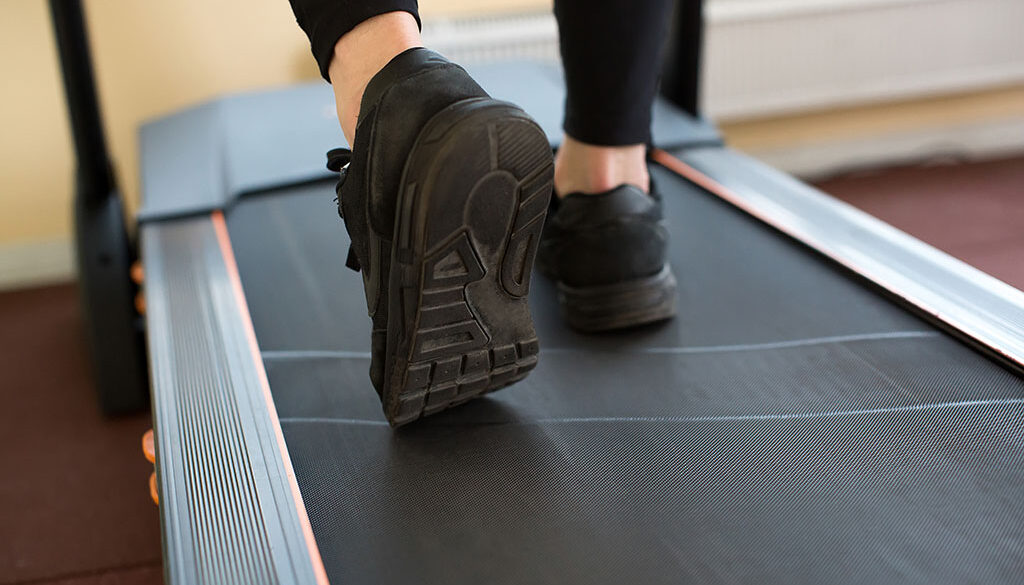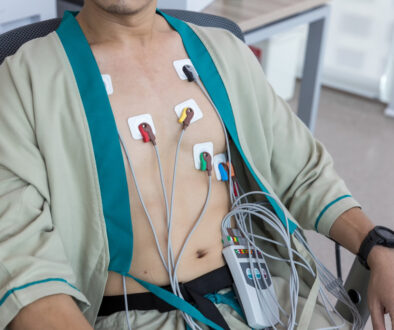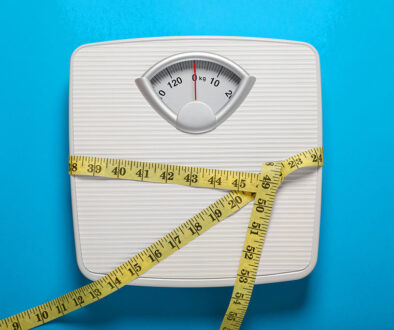What Happens During a Stress Test? What Do the Results Mean?
If you’ve ever been diagnosed with an irregular heartbeat, experienced chest pain, or found yourself getting very breathless during exercise, our internal medicine doctors in Raleigh may order a cardiac stress test. This test helps us determine how well your heart is functioning.
While anyone of any age can have the test, what happens during a stress test may be confusing to many. We’re here to give clear information to provide all you need to know about what happens during a stress test so you’re well-prepared if your doctor says you need one.
What Happens During a Stress Test?
What happens during a stress test depends upon your symptoms and your individual situation. Essentially, you will exercise—typically by walking on a treadmill —while your heart rate is monitored. We monitor your heart rate by placing electrodes on your chest, arms and legs.
Your blood pressure will also be monitored throughout the test and during the “cool down” period after the test.
You’ll start walking slowly on the treadmill which is what happens during a stress test. Gradually, the pace increases, and we’ll evaluate how well your heart is responding. This typically involves taking your heart rate to a certain level.
From beginning to end, the stress test takes around an hour, though you may only be on the treadmill for 10-15 minutes.
What Happens During a Stress Test If I Can’t Complete the Exercise?
We’ll monitor you for signs that we should stop the stress test. Some of these signs may include:
- Severe chest pain
- Dizziness
- Extreme difficulty catching your breath
- Fatigue
- Abnormal heart rhythms
- Changes in your electrocardiogram (EKG)
After the stress test, we may refer you for other diagnostic tests to pinpoint the underlying cause of your problems.
What Happens After a Stress Test?
Your internal medicine doctor in Raleigh will help you “cool down,” meaning you’ll be asked to stand still and then lie down for a while with the monitors still attached. This is done because we want to see what occurs when your heart and respiration rates return to normal.
Are There Any Restrictions After a Stress Test?
While this will depend upon your individual condition, in general, you can return to your regular activities unless we tell you otherwise.
What Does the Stress Test Measure?
Your stress test will measure your target heart rate, which varies depending upon your age.
Typically, for adults, the maximum heart rate predicted is 220 minus your age. If you’re taking a diagnostic treadmill heart stress test, we will try to achieve roughly 85 percent of the maximum heart rate. This is because we want to achieve a balance: We want to test how well your heart responds to exercise accurately.
Raleigh Adult Medicine: Internal Medicine Physicians in Raleigh Who Help You Stay Heart-Healthy
We know that a variety of factors—age, weight, diet and family history—can all affect your heart. That’s why our team of experienced physicians work with you to help you live the healthiest life possible.
If you need our cardiac care services, we offer echocardiography to help us evaluate how your heart is functioning, and whether or not you may need a stress test.
We’d love the privilege of caring for you. Contact us to schedule an appointment.
For more than 20 years, Raleigh Adult Medicine has served as the Triangle area’s premier internal medicine provider. We tailor our treatments to provide the finest personalized health care available for each stage of your adult life. Contact us to schedule an appointment.




